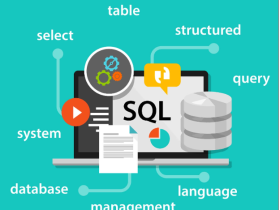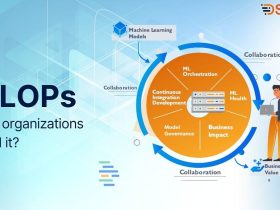The rise of big data analytics (or BDA) is a new frontier for innovation and competition in the giant spectrum of the e-commerce landscape. Big data creates new challenges and opportunities created by the information revolution.
Retailers using big data analytics can understand the buying behavior of their customers in the context of current market trends. In turn, these companies align their marketing directly with customer preferences, develop new products that meet customer needs and ensure that employees deliver the service that customers expect.
What is e-commerce big data analytics?
BIMAA (big data, micro-segmentation, and machine learning) is an approach to AI (artificial intelligence) based technology that improves store performance and revenue. It improves sales conversion by observing, learning from, and using customer data at the store level. It provides a holistic view of the customer.
In e-commerce big data, if you look at a non-customer side of the business, there are data silos and data analyzers that use point solutions. These point solutions make assumptions about where data resides and make recommendations to fix that. BDA takes this to the next level. It ensures that there’s a shared view and that the insights and rules are as simple as possible.
How does it benefit my company?
Big data analytics is essential for today’s e-commerce business because it gives e-commerce players access to the data required to analyze customer buying behavior in detail. Additionally, companies can utilize big data analytics to learn more about customers and tailor the products and services to meet their needs.
“In the last few years, the importance of data has risen to a point where it is very hard to outsmart your competitors if you are not on top of the technology and using all the right tools. “Whether you are the leader or laggard in the world of data analytics, it is very important to get on board the big data train as soon as possible.
How to get started with BigData Analytics for Ecommerce
Many businesses still feel uncomfortable with the concept of big data analytics, as it is not something that most consumers are familiar with. Big data is sometimes referred to as Big Data as the data that is being analyzed is considered as large as the universe.
In a nutshell, big data can be used to analyze data from many sources. Although big data is used in the e-commerce space, it has applications in other areas as well.
For example, BDA can be used to analyze and analyze marketing efforts by looking at the response to ads or promotions, looking at data from both inbound and outbound communication.
Hiring a Data Analyst may seem like a daunting task for small businesses, but if you are prepared, it can actually be a great career move for your company.
What are the challenges and obstacles of Big Data Analytics for Ecommerce?
Business owners looking to leverage big data have some considerations to consider: – Cost and Data Ownership.
Big data analytics require a substantial investment in both hardware and software and require an investment in manpower. At first, all of these costs must be factored into the business model to ensure the project will be worthwhile. Organizations need to look at each data layer and decide if there is a need to retain it or move it.
If the data is primarily customer data, for example, organizations can choose to transfer this data to their own internal systems to perform the analytics.
In many cases, however, organizations will need to do some end-user work to integrate external systems and identify how data will be retained or shared with other companies.
Conclusion
Big data affects every aspect of the highly competitive e-commerce environment. With proper analysis, this growing sea of information brings a wealth of knowledge to online stores and increases their sales.
An outstanding customer experience is an important differentiation for eCommerce retailers, creating brand loyalty and reducing customer abandonment. With big data analytics, e-commerce companies can improve user interfaces, combine data from multiple platforms to create accurate user profiles, and customize product recommendations and customer communication content.
Companies can also optimize prices, forecast trends, forecast demand, and provide diverse and secure payment options with precision. Global e-commerce giants like Amazon and eBay are also using big data to learn more about their customers and to streamline the buying process. More and more e-commerce companies are using big data analytics to get the most out of the unstoppable flow of raw data.








